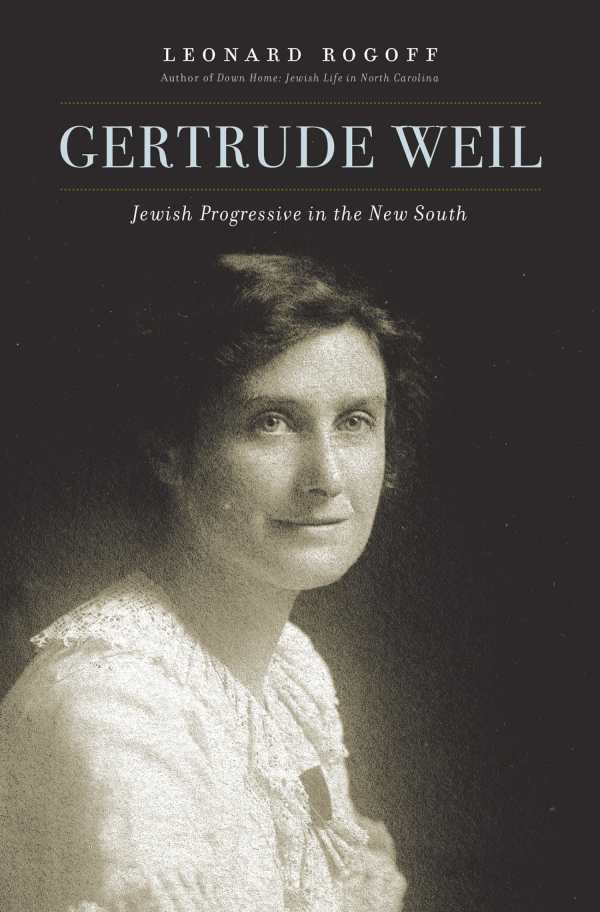
Gertrude Weil
Jewish Progressive in the New South
The world came to Gertrude Weil’s door, and Leonard Rogoff shows in Gertrude Weil: Jewish Progressive in the New South that she, in turn, bridged worlds. Born in 1879, a North Carolina Jew of German descent, Weil was educated at Smith College but returned to her hometown of Goldsboro afterward and remained active in philanthropic, political, and social causes there until her death in 1971. Her selfless, seemingly tireless advocacy was guided by the principles of Classical Reform Judaism, “moralism, rationalism, and universalism,” and, like Esther, she was a woman born in the right circumstances to act. Weil’s independent wealth, religious values, personal connections, and education allowed her unparalleled access and efficacy in her chosen causes. And she participated in an almost innumerable list: Zionism, labor reform, childhood and adult education, Jewish evacuation during the Holocaust, women’s suffrage, racial equality, birth control, eugenics, Jewish apologetics, and ecumenical education, among others.
Nonetheless, Weil is a difficult person to figure out. A woman whose public persona often diverged from her intensely private personal life, Weil made comments to the effect that she was a woman “straddling eras” who “held a modern worldview without abandoning her Victorian pieties,” and this tension is even more palpable in retrospect. Rogoff tackles the challenge by zooming out to show the larger picture of people, politics, and place surrounding Weil in between shorter personal vignettes. Weil’s activities encompassed such a wide array of local, state, and national causes over such a long period that, at times, the wider picture becomes dizzying. While Weil herself remains somewhat of a cipher, Rogoff explores the unique intersectionality of social moment and movement her life offers.
Reviewed by
Letitia Montgomery-Rodgers
Disclosure: This article is not an endorsement, but a review. The publisher of this book provided free copies of the book to have their book reviewed by a professional reviewer. No fee was paid by the publisher for this review. Foreword Reviews only recommends books that we love. Foreword Magazine, Inc. is disclosing this in accordance with the Federal Trade Commission’s 16 CFR, Part 255.
